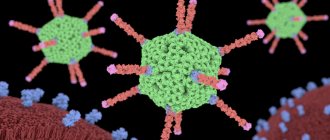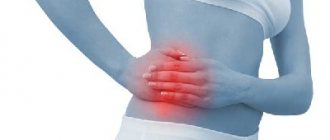What is the most common cause of abdominal pain? When does an aching stomach indicate serious illnesses? When should you visit an endocrinologist? What methods are effective for relieving abdominal pain?
Stomach pain can be caused by various factors. The cause may be, among other things, gastritis, gastrointestinal infections or peptic ulcers. Sometimes, however, there is no organic cause in the gastrointestinal tract. In this case, the condition is called dyspepsia or functional dyspepsia.
Abdominal pain is sometimes not related to the gastrointestinal tract, for example, it is caused by stress or neurological disorders.
Causes of abdominal pain - what does abdominal pain mean?
The content of the article
There are several main causes of abdominal pain:
- Gastritis
. The most common cause of gastritis is infection with the bacterium Helicobacter pylori. This infection is very common. In addition to gastritis, infection with this bacterium is also a risk factor for stomach ulcers and cancer. Gastritis is often asymptomatic, but can also cause abdominal pain. - Hemorrhagic gastropathy.
Another common cause of abdominal pain is acute hemorrhagic gastropathy. This is a type of gastritis with erosions. Abdominal pain occurs after excessive use of painkillers and alcohol, as well as as a result of stress and serious injury. - Foodborne infections
. May also cause pain in the stomach area. Then the pain accompanies infectious diarrhea. The etiological factor of such diarrhea is viruses, bacteria or bacterial toxins. - Dysbacteriosis
. After long-term use of an antibiotic, so-called post-antibiotic diarrhea usually occurs, which consists of a disturbance in the composition of the intestinal bacterial flora. - Peptic ulcer disease
. This condition also produces characteristic pain. The main cause of stomach ulcers is H. pylori infection. Less commonly, ulcers can form as a result of taking non-steroidal anti-inflammatory drugs and steroids. - Dyspepsia in pregnant women
. Dyspepsia, including abdominal pain, is a common complaint among pregnant women. Due to the anatomical changes that occur in a woman's body, heartburn is also a common problem.
Often the cause of ailments mistakenly taken for abdominal pain is pressure on the sensory nerves, for example, with discopathy of the thoracic spine. Then the abdominal pain may be associated with back pain.
Current problem
For most people, heartburn is simply an occasional discomfort. Approximately 20% of the population of highly developed countries experience it at least once a month.
But for the 6% of people who have a chronic form of heartburn known as gastroesophageal reflux disease (GERD), unresolved (untreated) symptoms can lead to various health complications. People with erosions in the lining of the esophagus due to acid reflux often do not realize the harm of GERD until they have advanced stages of the disease.
If you experience frequent or prolonged heartburn (twice a week on a regular basis), consult your doctor. Here are nine reasons why you shouldn't ignore the symptoms of gastroesophageal reflux disease.
Symptoms of abdominal pain - when to contact a gastroenterologist?
Symptoms of abdominal pain
You need to make an appointment with a gastroenterologist if the place where you feel abdominal pain is the upper abdomen, that is, the area under the lower edge of the sternum. Pain in this area may also indicate pathology located in other organs, for example, in the duodenum, intestines, or pancreas.
Pain can be of different natures. With stomach and duodenal ulcers, the pain is burning. She is strong and persistent, but does not interfere with her main activities. Stomach pain occurs at certain times, such as at night or early in the morning. It most often occurs on an empty stomach, a few hours after eating, and decreases after eating or taking antacids.
On the other hand, when a gastric ulcer perforates, patients experience very severe stabbing pain in the abdomen, reminiscent of a knife prick.
In the case of indigestion, that is, dyspepsia, stomach pain is accompanied by pressure in the stomach, a feeling of fullness and nausea. Heartburn, belching and flatulence are also common. Symptoms often appear, mainly after eating.
Symptoms of a foodborne infection usually appear several hours to several days after exposure. The predominant symptom is diarrhea, but gastrointestinal pain and vomiting may also occur.
Get emergency medical help if abdominal pain is accompanied by symptoms such as:
- significant weight loss in a short time;
- abdominal pain that interferes with normal functioning or, for example, sleep;
- gastrointestinal bleeding, manifested as vomiting blood or bloody stools;
- difficulty swallowing;
- palpable swelling in the upper abdomen;
- jaundice;
- signs of severe dehydration such as fainting.
Throat and voice problems
The main symptom of gastroesophageal reflux disease is heartburn, but not all people feel or report it. They may have other symptoms that are more difficult to diagnose. Doctors call these cases "silent reflux," or asymptomatic reflux. The patient may not have heartburn as classically described in textbooks, but they may have various other problems that occur outside the esophagus, such as hoarseness, voice changes, sore throat, or chronic cough. They feel as if there is a lump or hair in their throat and constantly have to clear their throat by coughing and clearing their throat.
Diagnosis of stomach pain - what tests should be performed?
When diagnosing abdominal pain, a carefully collected medical history is important. The primary diagnosis is made by when symptoms continue, when they occur, and then when they disappear. The rhythm of bowel movements and possible changes in the appearance of the stool are important. You should also tell your doctor about the warning symptoms mentioned earlier.
A blood test, including a complete blood count, may provide some information about gastrointestinal bleeding or nutritional deficiencies.
It is important to check for H. pylori infection. For this purpose, blood tests, stool tests, or a sample taken during a gastroscopy are most often performed. Gastroscopy is a key method for diagnosing peptic ulcers, as well as some inflammations of the gastric mucosa.
In case of abdominal pain, imaging tests, primarily ultrasound, are mandatory. They allow you to confirm or exclude, for example, gallstones or kidney stones. If symptoms do not go away and all organic diseases of the gastrointestinal tract are excluded, functional diseases of the digestive system, which can cause stomach pain, should be diagnosed. These include, for example, pain in the epigastrium.
Diagnosis of functional disorders is difficult, since during their course nervous pain in the stomach is possible. Therefore, a consultation with a psychiatrist may also be required.
Esophageal ulcers
Stomach acid can erode the lining of the esophagus, causing sores and ulcers. Esophageal ulcers are different from stomach ulcers, which are usually caused by bacteria. People with wounds and sores may spit up blood and may also vomit blood. They may see blood in their stool. The blood may be red, cherry red, or like coffee particles. In stool, blood from the esophagus and stomach usually turns black when passing through the small intestine, the color and appearance of oil - viscous, slippery, and difficult to wash off.
Contact your doctor immediately if you have these symptoms. Endoscopy can detect ulcers of the esophagus. Acid-blocking or acid-lowering medications may make them disappear.
Stomach pain - treatment
Treatment for stomach pain depends on the underlying cause. In the case of an active H. pylori infection, it is necessary to kill the bacteria using a combination of antibiotics and proton pump inhibitors (PPIs). The neutralizing effect of PPIs is also used in the treatment of peptic ulcers.
People with peptic ulcers or inflammation of the gastric mucosa are not recommended to use non-steroidal anti-inflammatory drugs such as ibuprofen, diclofenac, ketoprofen and others. They can worsen symptoms and add new ones due to side effects.
On the other hand, in case of pain, paracetamol and diastolic drugs, for example, drotaverine drugs, can be used.
In the treatment of functional dyspepsia, prokinetic drugs that improve the functioning of the digestive system may be useful. Because some cases of abdominal pain can be caused by stress, the help of a therapist may be needed. Antidepressants such as amitriptyline are used to treat such conditions.
Development of inflammation in the esophagus (esophagitis)
In gastroesophageal reflux disease, food, acid, and digestive juices back up into the esophagus. Over time, this causes irritation and swelling of the mucous membrane lining the inside of the esophagus. This is esophagitis. If acid exposure in the esophagus is observed for just a few weeks, then inflammation of the mucous membrane can already develop. This can cause discomfort and even pain along the midline of the abdominal wall, “in the pit of the stomach,” where the right and left ribs meet at the sternum. This inflammation makes the esophagus vulnerable to even more dangerous conditions - erosions or scars.
Home remedies for stomach pain
Home Remedies for Stomach Pain
Self-monitoring is very important when treating stomach pain. You should eat small portions and monitor how your stomach reacts to certain foods. Excluding or including certain ingredients for several days helps with this.
Anyone with peptic ulcers, gastritis or functional disorders should avoid smoking, drinking alcohol and drinking coffee. Coffee does not interfere with the healing of stomach ulcers, but after drinking coffee or drinking alcohol, stomach pain may intensify.
Some home remedies for stomach pain, such as baking soda, are also not recommended. Sodium bicarbonate neutralizes stomach acid to some extent, which helps with peptic ulcers or reflux disease, but excessive sodium intake is harmful, especially for people with cardiovascular disease.
Lozenges containing neutralizing agents based on calcium and magnesium salts can be used in limited quantities. But herbal medicines are not mentioned in official recommendations for the treatment of these causes of abdominal pain. In case of peptic ulcer and H. pylori infection, only pharmacotherapy is key and should not be replaced by herbs.
There are isolated reports in the scientific literature about the effectiveness of some herbs for functional dyspepsia. Turmeric, licorice root, peppermint, and celandine are mentioned. The capsaicin found in chili peppers is believed to reduce the transmission of pain in the abdominal organs. Because some cases of functional dyspepsia are caused by stress, herbal medications with a sedative effect, such as lemon balm or valerian, may be helpful. But any herbs cannot replace drug treatment, so they are taken only in combination with medications, and only as prescribed by a doctor.
Barrett's esophagus
If left untreated for many years, persistent acid reflux can form changes in cells known as Barrett's esophagus, which is considered a precancerous condition. This condition does not cause many symptoms other than those of reflux. A doctor can diagnose it by performing an endoscopy.
If you have heartburn more than twice a week for a long time, or if you have symptoms of gastroesophageal reflux disease that are getting worse or you have discovered new ones that you didn't have before, these are all reasons to get checked and have an endoscopy.
What will happen if left untreated?
The pathological process, accompanied by “hunger” pains, will gradually progress, one disease will transform into another, and complications will arise. Thus, the erosion will become deeper and deeper and one day form an ulcer, which may subsequently be complicated by bleeding, perforation, or even transform into a malignant tumor. It is easier to eliminate any disease at an early stage than at the stage of complications.
Why do hunger pains occur?
This type of pain syndrome usually indicates the localization of the pathological process in the lower part of the stomach (its antrum and pylorus) and/or duodenum. It can become one of the manifestations of simple or erosive gastritis, duodenitis, gastroduodenitis, or peptic ulcer disease, in which the defect in the organ wall is localized in the above areas.
How to treat?
This, of course, directly depends on the disease that will be diagnosed. Undoubtedly, one of the components of treatment will be a diet that excludes fatty, fried, hot, spicy foods that increase acid formation in the stomach, alcoholic and carbonated drinks.
Drug treatment may include drugs from the following pharmacological groups:
- antibiotics (for diagnosed peptic ulcer disease, the causative agent of which, as is known, is the bacterium Helicobacter pylori);
- proton pump inhibitors (omeprazole, rabeprazole, lansoprazole, etc.);
- prokinetics (domperidone);
- gastroprotectors (for example, bismuth preparations - De-nol, Vis-nol and others);
- antispasmodics (No-shpa, Meverin);
- antacids (Gaviscon and others)…
In severe cases, for example, if an ulcerative defect on the mucous membrane of the duodenum is not amenable to drug treatment, the patient cannot do without surgical intervention. Fortunately, such situations do not happen so often, and with the help of conservative methods it is still possible to defeat the disease.









